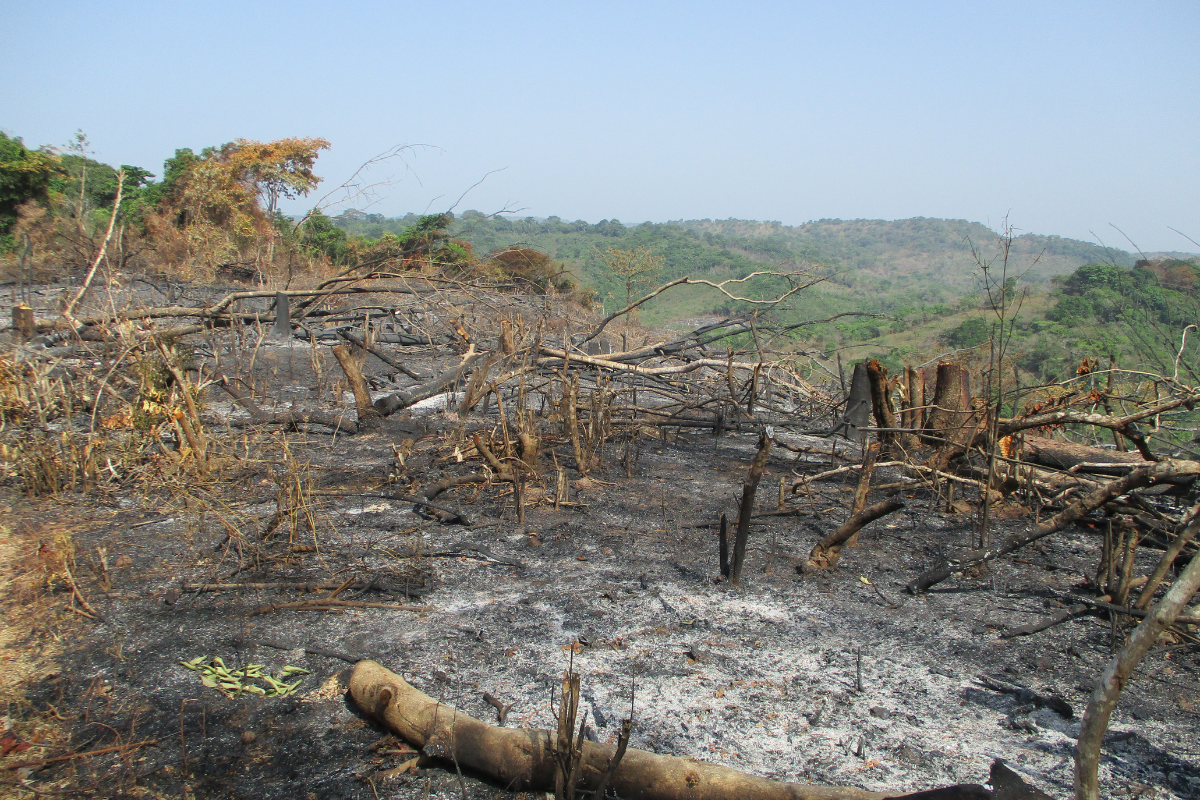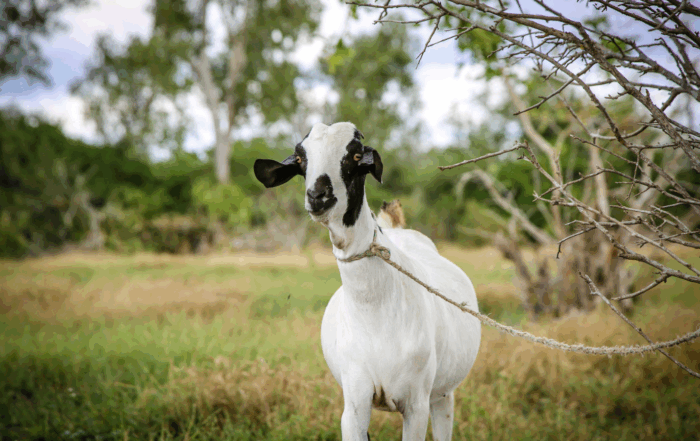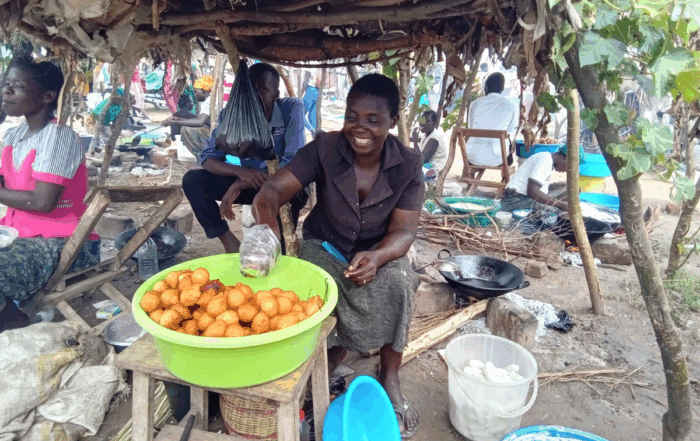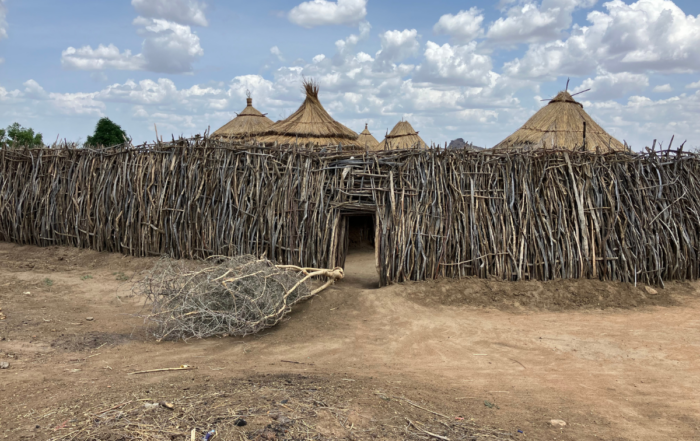A SONG OF JOY amid deforestation
February 15, 2024
A song of joy amid deforestation
February 15, 2024

Psalm 96:12 declares, “Let the fields be jubilant, and everything in them; let all the trees of the forest sing for joy.” (NIV) But we live in a world where the trees of the forest are being cut down and the planet is paying a heavy price.
According to the World Wildlife Fund (WWF), the world’s forests have shrunk by more than 31% since human civilization began. Joseph Mutebi, World Renew’s Program Consultant in Uganda, says because of deforestation, “There are erratic rainfalls. There are prolonged dry spells. There is depleted soil productivity. There is an increase in pests and diseases affecting crops.”
The importance of trees
Trees offer a habitat for wildlife and are essential to improving soil and water conservation, storing carbon, regulating temperature extremes, and improving the land’s capacity to adapt to climate change. WWF attributes forest loss and damage to be the cause of around 10% of global warming. Whether one believes that statistic or not, it is undeniable that the world has witnessed an uptick in extreme weather—weather that has devastating impacts, including loss of life, the destruction of crops, and an increase in global hunger.
In Madagascar, prolonged drought has claimed thousands of lives and left hundreds of thousands struggling with acute hunger. In Guatemala, farming families are being ripped apart as men leave to go in search of work abroad because the land that once provided employment and food for communities has become barren. In India, entire communities are grappling with hunger after their crops were washed away in devastating floods.
Joseph explains that in Uganda, the government has laws in place to prevent the cutting of forests, but he admits, “The level of adherence is low.” And this disregard for the laws implemented to protect forests is a problem that World Renew has witnessed in other countries where we work.
The vicious cycle of deforestation
But people need to eat. They need to survive. It is important to note that deforestation is not a problem that sits squarely on the shoulders of communities relying on the land to survive. However, to meet their basic needs, many farming communities are living in a vicious cycle where forests are cleared through deforestation to create land for cultivation, then crops perish because there are no trees to protect the soil from extreme weather. When crops fail because the soil is depleted or under attack by the pests that once lived in the forests, the process starts again with forests getting levelled to create more land for cultivation—or to harvest wood for use in construction or as charcoal fuel so farming families can supplement their dwindling income. So how do communities get off the merry-go-round? How do they protect forests and still ensure families have enough to eat?
Joseph explains that World Renew Uganda, in partnership with Canadian Foodgrains Bank and our local partners, uses a holistic and integrated approach to food security that includes deliberate tree planting with a focus on restoring trees used for fruit or fuel; regeneration of the soil through conservation agriculture practices; the introduction of savings groups and new environmentally-friendly income-generating activities, like beekeeping; and finally, he says, “Education. Laws are not as effective as education.”
Learning to protect the earth’s resources
When communities hear about the importance of trees and the impacts plastics and pollutants have not only on the environment, but on their ability to be food secure, Joseph explains, they are far more committed to protecting forests and wisely stewarding the earth’s resources. Educating them on new ways to generate income and to protect their land renews their hope for the future.
A journey from hunger to food security
Smallholder farmers and husband and wife Oyirwoth Dickson and Ochida Gladys are participants in a food security program implemented by the Church of Uganda with support from Canadian Foodgrains Bank and World Renew.
Through the program, Oyirwoth learned about organizing and promoting savings groups, and the family began actively saving for their own needs. After several years of using savings to increase their goat herd, an opportunity arose to purchase 15 acres of land. Though too rocky for farming, the couple was inspired by program training sessions and had a vision of regreening the land to serve as a goat pasture and bee sanctuary. They carefully nurtured the live tree stumps already growing on the land using a method known as Farmer Managed Natural Regeneration and protected the whole area from the wildfires that local farmers use to clear fields.
Today the couple’s green oasis supports several dozen goats and 21 beehives. Ochida says, “Sales from the honey helps me feed my family and send my children to school.”
In addition to their livestock operation, the couple implemented the conservation agriculture practices they learned that ensured they preserved the nutrients in the soil, and they have been able to successfully harvest maize.
Driven to fully achieve their vision of farming sustainably and profitably, Oyirwoth and Ochida are determined to get their entire community actively participating in the methods that helped to transform their own lives. One recent step in this direction was the formation of a new farming group in their community. Oyirwoth and Ochida are working towards building a community with jubilant fields and lush forests full of trees that sing for joy.
Psalm 96:12 declares, “Let the fields be jubilant, and everything in them; let all the trees of the forest sing for joy.” (NIV) But we live in a world where the trees of the forest are being cut down and the planet is paying a heavy price.
According to the World Wildlife Fund (WWF), the world’s forests have shrunk by more than 31% since human civilization began. Joseph Mutebi, World Renew’s Program Consultant in Uganda, says because of deforestation, “There are erratic rainfalls. There are prolonged dry spells. There is depleted soil productivity. There is an increase in pests and diseases affecting crops.”
The importance of trees
Trees offer a habitat for wildlife and are essential to improving soil and water conservation, storing carbon, regulating temperature extremes, and improving the land’s capacity to adapt to climate change. WWF attributes forest loss and damage to be the cause of around 10% of global warming. Whether one believes that statistic or not, it is undeniable that the world has witnessed an uptick in extreme weather—weather that has devastating impacts, including loss of life, the destruction of crops, and an increase in global hunger.
In Madagascar, prolonged drought has claimed thousands of lives and left hundreds of thousands struggling with acute hunger. In Guatemala, farming families are being ripped apart as men leave to go in search of work abroad because the land that once provided employment and food for communities has become barren. In India, entire communities are grappling with hunger after their crops were washed away in devastating floods.
Joseph explains that in Uganda, the government has laws in place to prevent the cutting of forests, but he admits, “The level of adherence is low.” And this disregard for the laws implemented to protect forests is a problem that World Renew has witnessed in other countries where we work.
The vicious cycle of deforestation
But people need to eat. They need to survive. It is important to note that deforestation is not a problem that sits squarely on the shoulders of communities relying on the land to survive. However, to meet their basic needs, many farming communities are living in a vicious cycle where forests are cleared through deforestation to create land for cultivation, then crops perish because there are no trees to protect the soil from extreme weather. When crops fail because the soil is depleted or under attack by the pests that once lived in the forests, the process starts again with forests getting levelled to create more land for cultivation—or to harvest wood for use in construction or as charcoal fuel so farming families can supplement their dwindling income. So how do communities get off the merry-go-round? How do they protect forests and still ensure families have enough to eat?
Joseph explains that World Renew Uganda, in partnership with Canadian Foodgrains Bank and our local partners, uses a holistic and integrated approach to food security that includes deliberate tree planting with a focus on restoring trees used for fruit or fuel; regeneration of the soil through conservation agriculture practices; the introduction of savings groups and new environmentally-friendly income-generating activities, like beekeeping; and finally, he says, “Education. Laws are not as effective as education.”
Learning to protect the earth’s resources
When communities hear about the importance of trees and the impacts plastics and pollutants have not only on the environment, but on their ability to be food secure, Joseph explains, they are far more committed to protecting forests and wisely stewarding the earth’s resources. Educating them on new ways to generate income and to protect their land renews their hope for the future.
A journey from hunger to food security
Smallholder farmers and husband and wife Oyirwoth Dickson and Ochida Gladys are participants in a food security program implemented by the Church of Uganda with support from Canadian Foodgrains Bank and World Renew.
Through the program, Oyirwoth learned about organizing and promoting savings groups, and the family began actively saving for their own needs. After several years of using savings to increase their goat herd, an opportunity arose to purchase 15 acres of land. Though too rocky for farming, the couple was inspired by program training sessions and had a vision of regreening the land to serve as a goat pasture and bee sanctuary. They carefully nurtured the live tree stumps already growing on the land using a method known as Farmer Managed Natural Regeneration and protected the whole area from the wildfires that local farmers use to clear fields.
Today the couple’s green oasis supports several dozen goats and 21 beehives. Ochida says, “Sales from the honey helps me feed my family and send my children to school.”
In addition to their livestock operation, the couple implemented the conservation agriculture practices they learned that ensured they preserved the nutrients in the soil, and they have been able to successfully harvest maize.
Driven to fully achieve their vision of farming sustainably and profitably, Oyirwoth and Ochida are determined to get their entire community actively participating in the methods that helped to transform their own lives. One recent step in this direction was the formation of a new farming group in their community. Oyirwoth and Ochida are working towards building a community with jubilant fields and lush forests full of trees that sing for joy.






